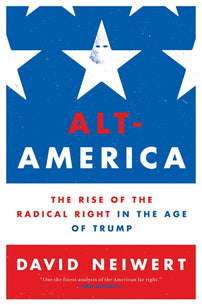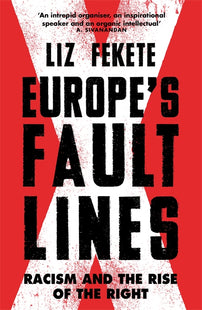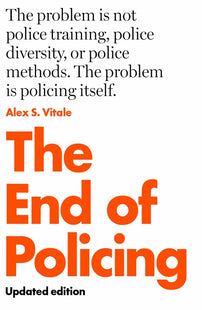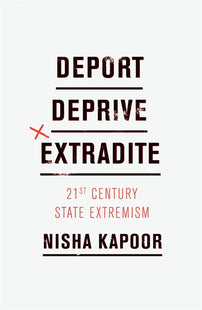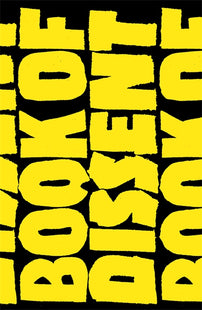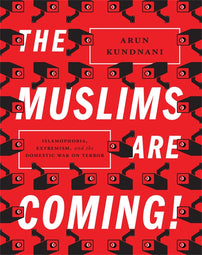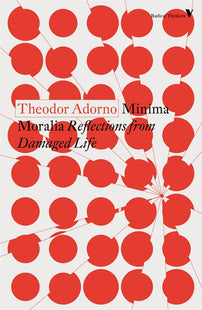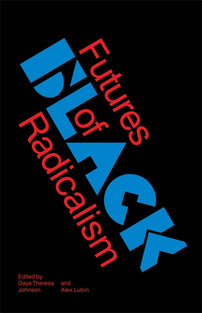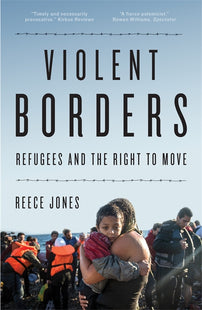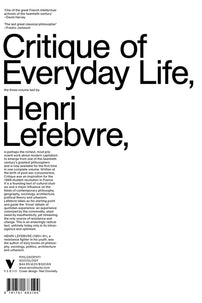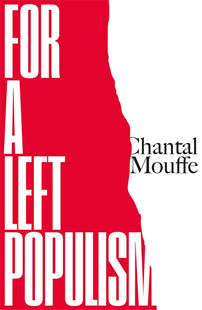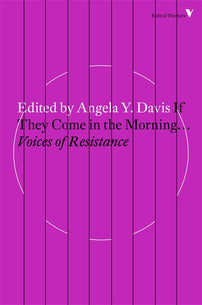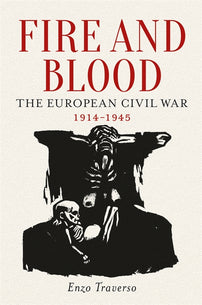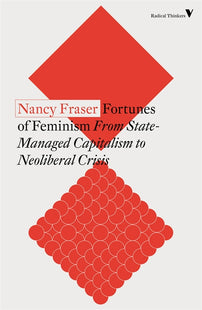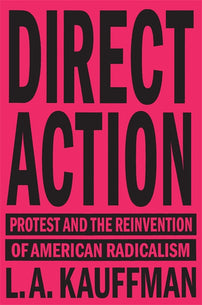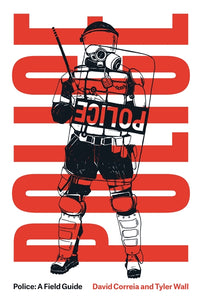Smash The Fash Reading List
Verso presents a reading list to engage with issues concerning the rise of the far-right, and the means of defending against it.

As far-right extremist groups appear to be ever-expanding across Europe and America, radical ideas that challenge the politics of hate have never been more important.
With every surge in fascism, the ideas of the radical left come under attack. Here we present a reading list of books that engage with issues concerning the rise of the far-right, as well as the means of defending against it.
[book-strip index="1" style="buy"]Just as Donald Trump's victorious campaign for the US presidency shocked the world, the seemingly sudden national prominence of white supremacists, xenophobes, militia leaders, and mysterious 'alt-right' figures mystifies many. But the American extreme right has been growing steadily in number and influence since the 1990s with the rise of patriot militias.
Alt-America, is a report on the growth of fascism and far-right terrorism, the violence of which in the last decade has surpassed anything inspired by Islamist or other ideologies in the United States.
[book-strip index="2" style="buy"]The past decade saw the rise of the British National Party, the country's most successful ever far-right political movement, and the emergence of the anti-Islamic English Defence League. Taking aim at asylum seekers, Muslims, enforced multiculturalism and benefit scroungers, these groups have been working overtime to shift the blame for the nation's ills onto the shoulders of the vulnerable. What does this extremist resurgence say about the state of modern Britain?
Bloody Nasty People calls time on this complacency in an account that provides us with fresh insights into the dynamics of political extremism.
[book-strip index="3" style="buy"]It is clear that the right is on the rise, but after Brexit, the election of Donald Trump and the spike in popularity of extreme-right parties across Europe, the question on everyone’s minds is: how did this happen?
An expansive investigation of the ways in which a newly configured right interconnects with anti-democratic and illiberal forces at the level of the state, Europe’s Fault Lines provides much-needed answers, revealing some uncomfortable truths. Drawing on more than three decades of work for the Institute of Race Relations, Liz Fekete exposes the fundamental fault lines of racism an tarianism in contemporary Europe.
Recent years have seen an explosion of protest against police brutality and repression. Among activists, journalists and politicians, the conversation about how to respond and improve policing has focused on accountability, diversity, training, and community relations. Unfortunately, these reforms will not produce results, either alone or in combination. The core of the problem must be addressed: the nature of modern policing itself.
This book attempts to spark public discussion by revealing the tainted origins of modern policing as a tool of social control. It shows how the expansion of police authority is inconsistent with community empowerment, social justice— even public safety. Drawing on groundbreaking research from across the world, and covering virtually every area in the increasingly broad range of police work, Alex Vitale demonstrates how law enforcement has come to exacerbate the very problems it is supposed to solve.
[book-strip index="5" style="buy"]In 2012 five Muslim men—Babar Ahmad, Talha Ahsan, Khalid al-Fawwaz, Adel Abdul Bary, and Abu Hamza—were extradited from Britain to the US to face terrorism-related charges. Fahad Hashmi was deported a few years before. Abid Naseer and Haroon Aswat would follow shortly. They were subject to pre-trial incarceration for up to seventeen years, police brutality, secret trials, secret evidence, long-term detention in solitary confinement, citizenship deprivation and more.
Deport, Deprive, Extradite explores how these cases illuminate and enable intensifying authoritarianism and the diminishment of our democratic systems.
[book-strip index="6" style="buy"]Now more than ever, we need to look to revolutionary history for inspiration in our current fight against the racist ideals of the far right.
Throughout the ages and across every continent, people have struggled against those in power and raised their voices in protest-rallying others around them or inspiring uprisings many years later. This anthology, global in scope, presents voices of dissent from every era of human history: speeches and pamphlets, poems and songs, plays and manifestos. Every age has its iconoclasts, and yet the greatest among them build on the words and actions of their forerunners.
[book-strip index="7" style="buy"]The concept of 'the Other' is a classic tool in the far-right handbook of divide-and-rule. Considering the concept through the lens of his own encounters in Africa, Asia and Latin America, Ryszard Kapuściński outlines the development of the West’s understanding of the Other from classical times through to today. He observes how we continue to treat the non-European as an alien and a threat, an object of study not yet sharing responsibility for the fate of the world.
In our globalized but increasingly polarized age, Kapuscinski shows how the Other remains one of the most compelling ideas of our time.
[book-strip index="8" style="buy"]Anti-Muslim rhetoric from prominent politicians has inspired a spike in hate crimes. Across the US, more than 900 incidents of hate-related intimidation or harassment were reported in just the first 10 days following the election of Donald Trump.
The new front in the War on Terror is the “homegrown enemy,” domestic terrorists who have become the focus of sprawling counterterrorism structures of policing and surveillance in the United States and across Europe. Domestic surveillance has mushroomed – at least 100,000 Muslims in America have been secretly under scrutiny.
[book-strip index="9" style="buy"]Why not read the philosopher the alt-right can't stop talking about? No not that one.
A reflection on everyday existence in the 'sphere of consumption of late Capitalism', Minima Moralia is Adorno's brooding literary and philosophical masterpiece, written while living in exile from the Nazi Party.
[book-strip index="10" style="buy"]By taking popular culture seriously as an object of study—whether it was film, music, ideas, or consumerism—the Frankfurt School elaborated upon the nature and crisis of our mass-produced, mechanised society.
Grand Hotel Abyss combines biography, philosophy, and storytelling to reveal how the Frankfurt thinkers gathered in hopes of understanding the politics of culture during the rise of fascism.
[book-strip index="11" style="buy"]With racial justice struggles on the rise, a probing collection considers the past and future of Black radicalism. In a time when activists in Ferguson, Palestine, Baltimore, and Hong Kong immediately connect across vast distances, this book makes clear that new Black radical politics is thoroughly internationalist and redraws the links between Black resistance and anti-capitalism.
[book-strip index="12" style="buy"]In De Colores Means All of Us, Elizabeth Martínez presents a vital radical Latina perspective on race, liberation and identity. She describes the provocative ideas and new movements created by the rapidly expanding US Latina/o community as it confronts intensified exploitation and racism.
[book-strip index="13" style="buy"]With Trump promising to build a wall, and the UK becoming increasingly isolationist, it’s important to remember the devastating effect of borders around the world; forty thousand people died trying to cross international borders in the past decade.
[book-strip index="14" style="buy"]It's big, it's heavy, and perhaps the richest, most prescient work by one of the twentieth century's greatest philosophers.
A work of enormous range and subtlety, Lefebvre takes as his starting-point and guide the “trivial” details of quotidian experience: an experience colonized by the commodity, shadowed by inauthenticity, yet one which remains the only source of resistance and change.
[book-strip index="15" style="buy"]America’s leading essayist on the frantic retreat of democracy, in the fire and smoke of the war on terror.
“[Illustrates] how and why our democracy has given way to a dysfunctional plutocracy of the super-rich, by the super-rich, and for the super-rich. Taken together, the book’s essays, published between 1990 and 2016 in Lapham’s Quarterly and Harper’s, serve as a powerful and alarming American history…With Age of Folly, Lapham provides the historical context needed to understand our current political moment.” – Adam Boretz, The Millions
[book-strip index="16" style="buy"]What is the “populist moment” and what does it mean for the left?
We are currently witnessing in Western Europe a “populist moment” that signals the crisis of neoliberal hegemony. The central axis of the political conflict will be between right- and left-wing populism. Here Chantal Mouffe argues that by establishing a frontier between “the people” and “the oligarchy,” a left–populist strategy could bring together the manifold struggles against subordination, oppression and discrimination.
[book-strip index="17" style="buy"]One of America’s most historic political trials is undoubtedly that of Angela Davis. Opening with a letter from James Baldwin to Davis, and including contributions from numerous radicals such as Black Panthers George Jackson, Huey P. Newton, Bobby Seale and Erica Huggins, this book is not only an account of Davis’s incarceration and the struggles surrounding it, but also perhaps the most comprehensive and thorough analysis of the prison system of the United State.
[book-strip index="18" style="buy"]Fire and Blood looks at the European crisis of the two world wars as a single historical sequence: the age of the European Civil War (1914–1945). Utilizing multiple sources, Enzo Traverso depicts the dialectic of this era of wars, revolutions and genocides. Rejecting commonplace notions of “totalitarian evil,” he rediscovers the feelings and reinterprets the ideas of an age of intellectual and political commitment when Europe shaped world history with its own collapse.
[book-strip index="19" style="buy"]Nancy Fraser charts the history of women's liberation and calls for a revitalized feminism. Tracing the feminist movement’s evolution since the 1970s, she anticipates a new—radical and egalitarian—phase of feminist thought and action.
[book-strip index="20" style="buy"]This deeply researched account, twenty-five years in the making, traces the evolution of disruptive protest since the Sixties to tell a larger story about the reshaping of the American left. Kauffman, a longtime grassroots organizer, examines how movements from ACT UP to Occupy Wall Street to Black Lives Matter have used disruptive tactics to catalyze change despite long odds.
A longtime movement insider's powerful account of the origins of today's protest movements and what they can achieve now.
[book-strip index="21" style="buy"]Radical glossary of the vocabulary of policing that redefines the very way we understand law enforcement.
Police: A Field Guide is an illustrated handbook to the methods, mythologies, and history that animate today’s police. It is a survival manual for encounters with cops and police logic, whether it arrives in the shape of officer friendly, Tasers, curfews, non-compliance, or reformist discourses about so-called bad apples.
